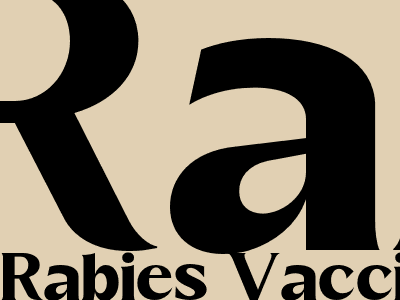
Rabies Vaccine Schedule
Rabies Vaccine Schedule: A Comprehensive Guide for Pet Owners
Introduction
Rabies is a fatal viral disease that affects the central nervous system of mammals, including humans. Vaccination is the most effective way to prevent rabies infection in pets and reduce the risk of transmission to humans. This comprehensive guide provides a detailed overview of the rabies vaccine schedule for dogs and cats, addressing common questions and concerns.
Why is the Rabies Vaccine Important?
Rabies is a zoonotic disease, meaning it can be transmitted from animals to humans. The virus is primarily spread through the saliva of infected animals, typically through bites or scratches. Rabies is almost always fatal if left untreated, making vaccination crucial for protecting both pets and their owners.
Rabies Vaccine Schedule
The rabies vaccine schedule for dogs and cats varies slightly depending on the specific vaccine used and the age of the animal. However, the general guidelines are as follows:
Dogs:
* Puppies should receive their first rabies vaccine at 12-16 weeks of age. * A second dose is required 1 year later. * After these initial doses, dogs typically receive booster vaccinations every 3 years.
Cats:
* Kittens should receive their first rabies vaccine at 12-16 weeks of age. * A second dose is required 1 year later. * After these initial doses, cats typically receive booster vaccinations every year.
Special Considerations
* Pregnant or lactating animals should consult with a veterinarian regarding vaccination schedules. * Dogs or cats that have been exposed to a rabid animal should receive immediate vaccination and booster shots as recommended by a veterinarian. * Animals that travel frequently or are at high risk of exposure to wildlife may need more frequent booster vaccinations.
Common Questions and Concerns
*
How effective is the rabies vaccine? The rabies vaccine is highly effective in preventing rabies infection. When administered and boosted regularly, it provides a strong immune response. *
Are there any side effects from the rabies vaccine? Minor side effects such as lethargy or mild fever can occur, but serious reactions are rare. *
Can I get rabies from my vaccinated pet? No, the rabies vaccine does not make pets infectious. However, it is important to keep vaccinations up to date to maintain protection. *
What if I miss a vaccination booster? If a booster dose is missed, consult with a veterinarian as soon as possible to determine the best course of action.
Conclusion
The rabies vaccine schedule is an essential part of responsible pet ownership and public health. By understanding the guidelines and following the recommended vaccination schedule, pet owners can effectively protect their animals and themselves from the devastating effects of rabies. Remember to consult with a veterinarian for personalized advice and to ensure the best possible health outcome for your pet.
Comments